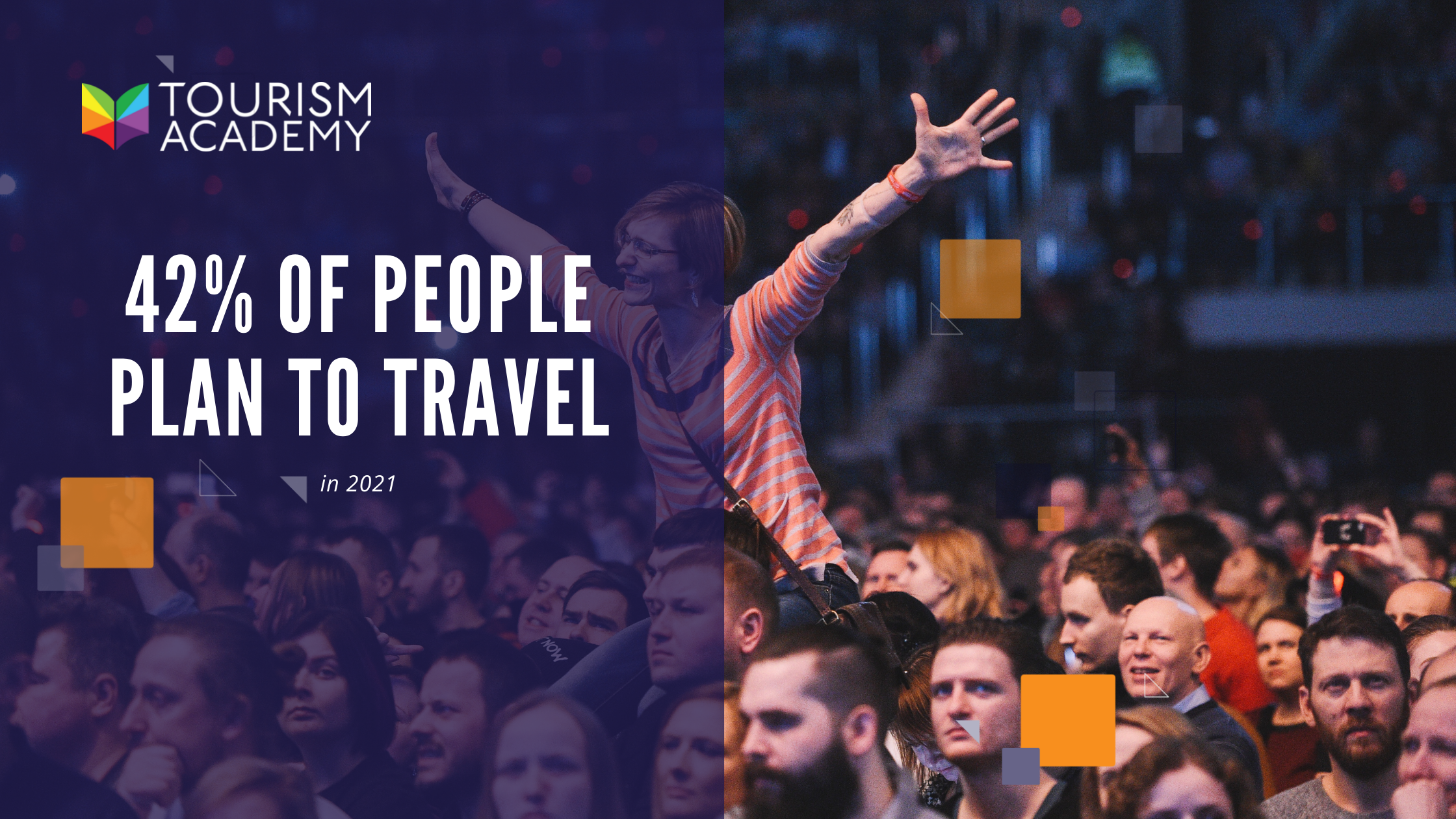
Stats: 42 Percent of People Plan to Travel in 2021
Travel tech company Impala has discovered that despite the fact most people have been stuck at home for months on end, only 42 percent of people are planning to travel in 2021. According to a survey of consumers across the United States, United Kingdom, European Union, Switzerland and the United Arab Emirates who regularly traveled before COVID-19 hit, more than half (58 percent) didn’t travel at all in 2020.
A Shift in Priorities
Among those surveyed, the top reason people said they would travel in 2021 was to see family and friends (38 percent). Of those planning to go further afield, 32 percent said they want their destination to be less crowded, and a quarter said they now consider it important to travel to a destination with a good healthcare system. Meanwhile, 22 percent said they will pick destinations with the highest vaccination rates.
When booking accommodation, respondents said they are concerned about three things: Regular mask-wearing among staff, regular room disinfection and flexible cancellation and rebooking options.
RELATED: Find the Right Keynote Speaker & Training Experts
RELATED: Empower & Inspire Travel Agents with Online Product Training
Types of Bookings
In terms of the types of bookings, there was little change in the choice of accommodation people will opt for in 2021. Participants who previously preferred a hotel over a rental apartment or Airbnb, for instance, will be sticking with these choices when they start traveling again. In fact, 70 percent of people surveyed said they would prefer to stay in a hotel on their next trip.
Conversely, the length of time people will likely be away for has changed. To note: Many are considering taking longer trips. Of those looking to be away for 14 days or longer, a fifth of respondents said they wanted to combine remote work with their stay, preferably at a destination that allows for productive work.
Personal Touch and Improved Tech
Beyond COVID, a corresponding survey commissioned by Impala found that travelers want a more personal touch when they stay in hotels—whether that’s attention paid to ensuring accessible guests’ needs are met or recognizing a special occasion like a honeymoon or anniversary. Respondents said they want to feel valued during their stay, Impala said.
This personal touch extends to the room they stay in. The participants said that they would actively be put off booking a stay at a hotel that uses generic room photos on its website. Customers want to know what their exact room will look like, what facilities it has and its layout. Virtual tours were quoted as a feature that would help seal the deal, as were decent coffee making facilities like a Nespresso machine.
Good connectivity and tech were also highlighted by consumers, as respondents said they want to be able to check-in, leave their room on the final day, and control the tech and lights in their room all from a central app.
Source: Impala
Bonus: Who are your stakeholders?
Bring destination stakeholders into alignment to support tourism:
Tourism Ambassadors from all possible market sectors come together to create a full visitor experience. Destinations, both big and small, can align these sectors successfully because each benefits from a positive visitor experience! Here are just a few of those who are positively impacted by your credentialed tourism ambassadors (CTA).
- Transportation hubs like Airports, Rail Stations, Bus Depots, etc.
- Activities, Attractions & Events - arts, culture, heritage, casinos, sports
- Government - City, State, Federal - elected officials like mayors and city council, government employees like police and community outreach
- Community Members - Passionate Volunteers & Local Citizens
- Conference Hotels, Convention Centers & Meeting Places
- Local Mom & Pop Shops and Downtown Merchants
- Community & Workforce Development / Economic Development
- Schools & Higher Education - colleges, universities, community colleges
- Medical Facilities - Urgent Care Centers & Hospitals
- Lodging & Hotels - home rentals, beds & breakfast, RV parks, hotels, etc.
- Bars, Clubs, Lounges & Nightlife
- Real Estate and Reinvestment Firms
- Places to Dine - coffee shops, restaurants, classy joints and local favorites
- Commercial Real Estate - malls, downtown alliances, retailers, districts, etc.
- Event Facilities - convention center, arena, theaters, concert halls, sporting events
- Modes of Transport - Uber, Lyft, taxi, cab, shuttle, public transit, local trolly, limo, motorcoach
- Tourism Promoters - Destination Marketing Organizations (DMO), Convention & Visitors Bureau (CVB), Chambers of Commerce & Community Economic Development Groups
- Everyone else - Tourism Spending benefits every local person and entity through reduced taxes and economic development, including local banks, corporations, etc.
Need help aligning your community, finding tourism ambassadors or designing your tourism ambassador program? Contact us today and our expert team will be happy to help you get the results you’re looking for. Cheers!


Leave a comment